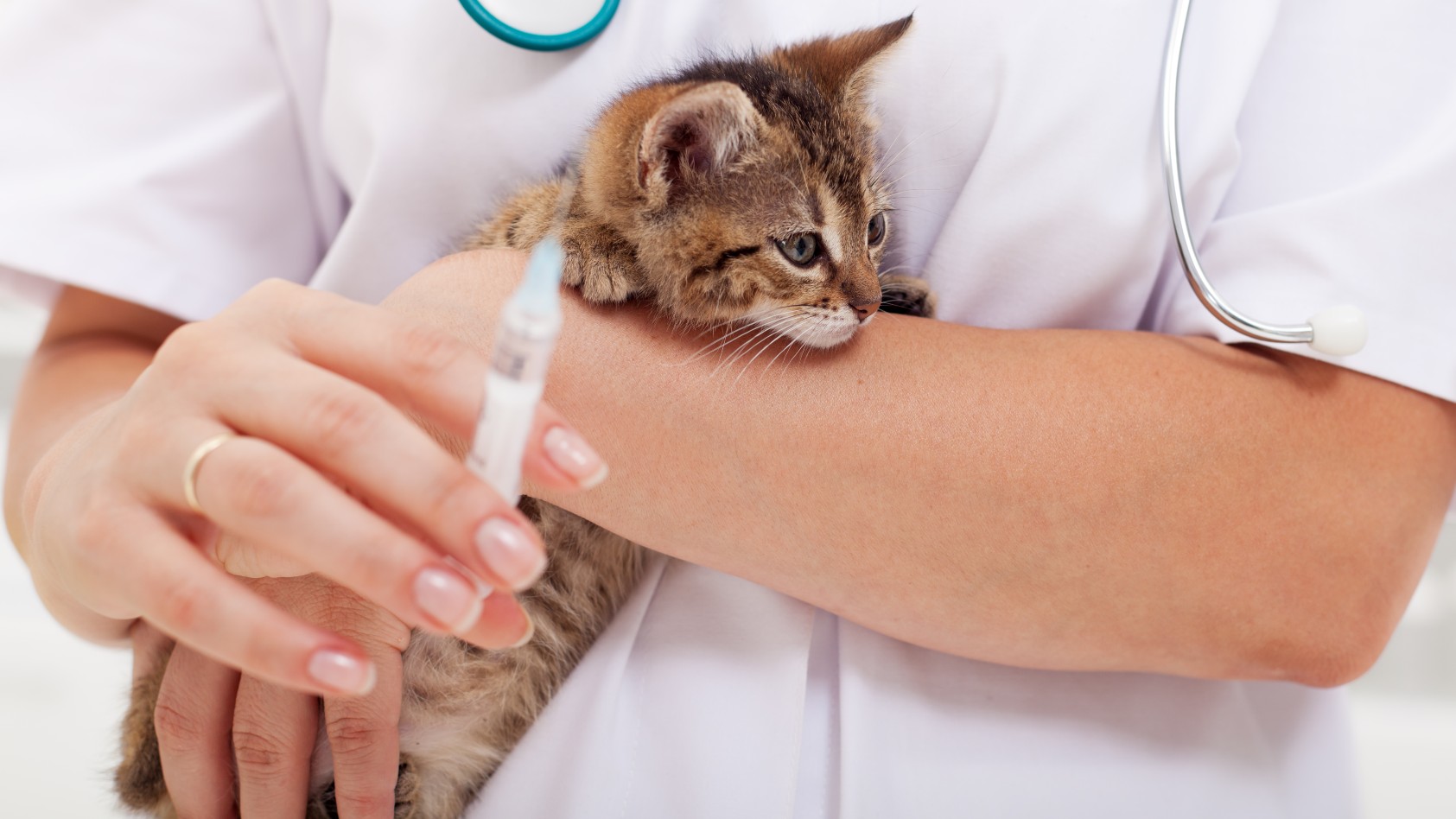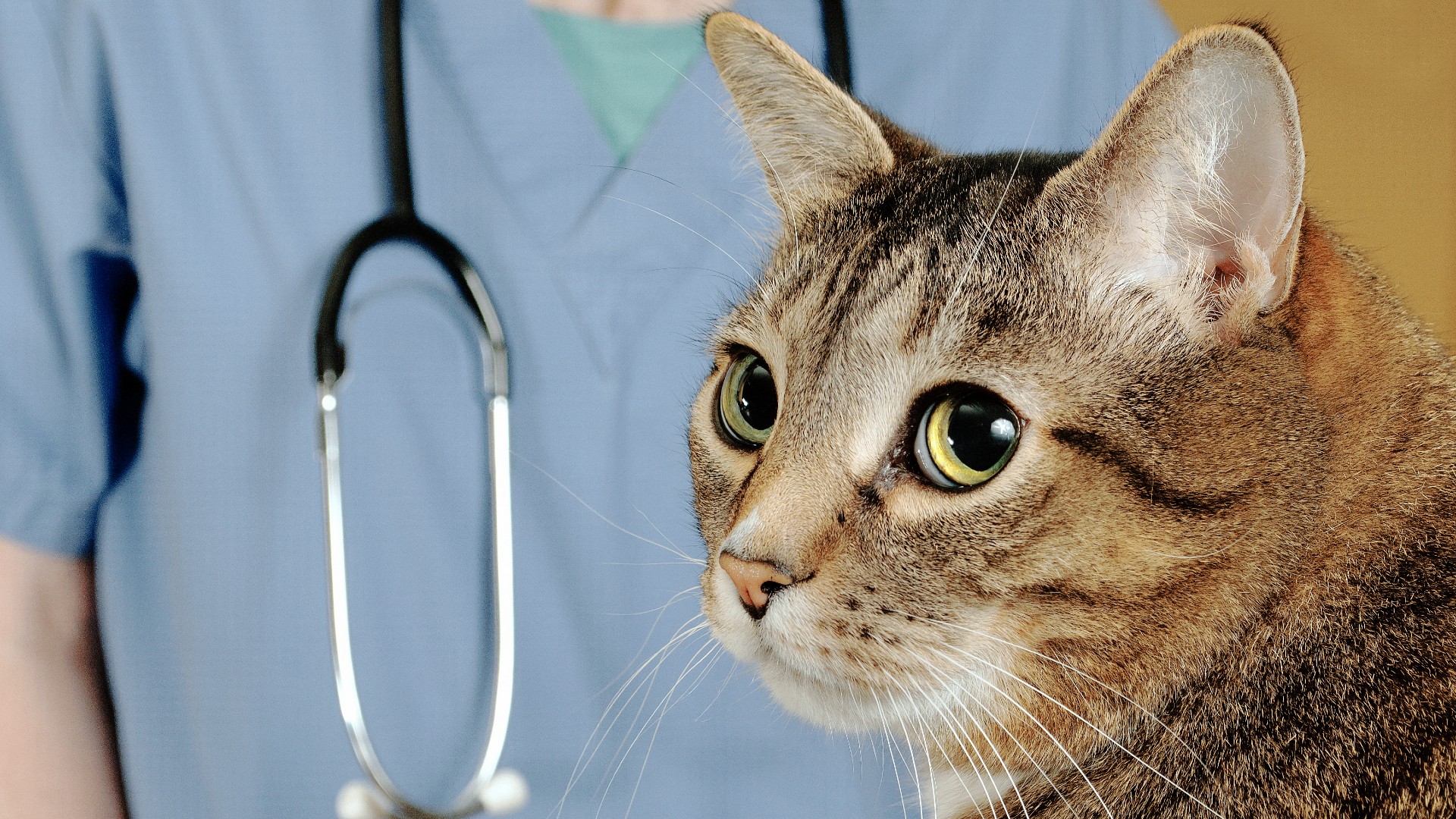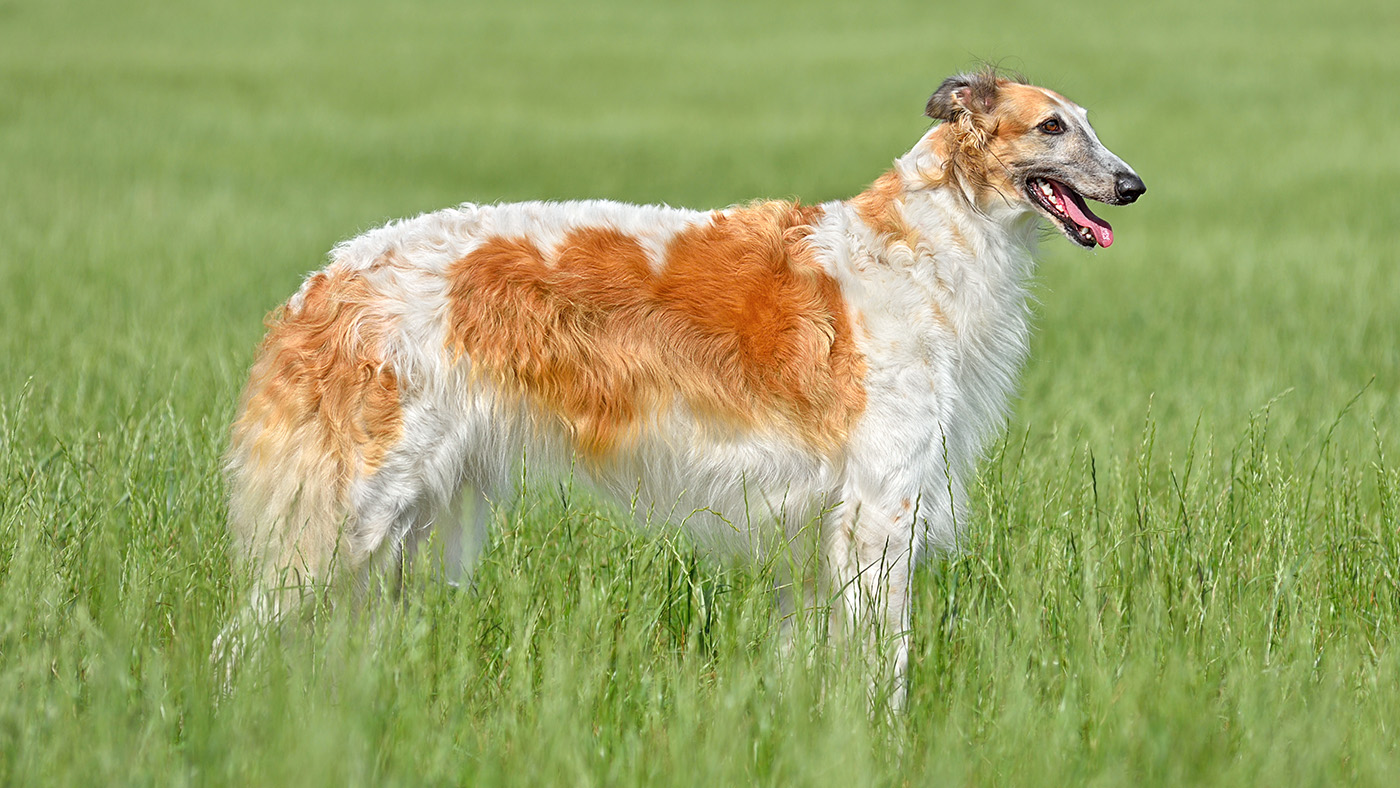How often do cats need rabies shots?
How often do cats need rabies shots? We spoke to a vet to find out

How often do cats need rabies shots? It's a question that many pet parents find themselves asking and that's understandable given that vets warn rabies is a viral disease that is fatal with no treatment available. Because of this, regular vaccination is vital in cats to prevent death and the spread of the virus in case of exposure.
Rabies has unfortunately enjoyed a renaissance in recent years and currently presents a growing threat to our feline friends. This is largely due to cat owners forgoing vaccinations for their largely indoor-based cats assuming that they’re not at risk of contracting the virus.
However, it’s important to remember that one altercation in the yard with an infected cat is all it takes for your kitty to be exposed, which is why staying on top of cat and kitten vaccinations is so crucial regardless of whether your fur friend spends the bulk of their time indoors or outdoors.
Although many of the best pet insurance policies may not cover the cost of vaccinations or other preventative care, it is imperative that all cats in countries with rabies receive vaccinations against the disease where possible.
We spoke to vet Dr. Diana Hasler to get her thoughts on rabies vaccinations, including how often they should be given to cats and whether there are any potential side effects. Here’s everything you need to know…

Dr. Diana Hasler, MRCVS is a 2018 graduate of the University of Edinburgh Royal (Dick) School of Veterinary Studies. She has experience working as a small animal veterinarian in first opinion practice, where she has treated many dogs, cats, rabbits, and rodents. She has also recently branched out into the field of medical communications and does freelance work as a medical editor and writer.
What is rabies?
Rabies is a virus that infects mammals, including cats, dogs, and humans. It is typically transmitted via the saliva when an infected animal bites another mammal. Common transmitters of rabies in North America include bats, raccoons, foxes, and skunks.
The virus replicates locally at the bite site before spreading to the central nervous system, causing neurological symptoms that eventually lead to coma and death. Infected animals may incubate the virus for weeks to months before showing any clinical signs, but once symptoms appear, affected animals typically die within 2 weeks. The course of disease varies depending on species, the location and severity of the bite, and the amount of the virus in the saliva of the infecting animal.
The classic presentation of rabies, “furious rabies,” is characterized by aggression, agitation, convulsions, vocalizations, and excessive drooling—this is the most common type seen in cats. Once symptoms have appeared, rabies is almost always fatal, so prevention via vaccination is essential.
Do indoor cats need rabies shots?
Yes! All cats living in countries with rabies should be given rabies vaccinations regularly throughout their lifetime. In fact, many states require that cats are vaccinated against rabies by law. The rabies vaccine is a “core vaccine” in the United States, meaning that it protects animals from a highly contagious, life-threatening disease. Rabies is a zoonotic disease—in other words, it can be transmitted from animals to humans, making it a threat to public health as well as your pets.
Even if a cat does not go outside or interact with any other animals, there is always a chance it could escape or that a rabid animal like a bat or raccoon could break into your home. Because there is no treatment for rabies in cats and the disease presents a significant risk to humans, not vaccinating your cat (regardless of whether they are indoor or outdoor) can have dire consequences.
By law, veterinarians are required to report suspected rabies cases to animal disease regulatory authorities. Many states require that unvaccinated cats who have been exposed to rabies are euthanized and sent away for testing since the disease cannot be diagnosed in living animals. In areas where euthanasia is not strictly required, the only other option is for the cat to be placed in strict quarantine to prevent the possible spread of the disease. This often has to be done at a veterinary clinic for up to four to six months, which can quickly become costly.
How long are rabies shots for cats good for?

The length of time a rabies vaccine is effective for depends on the particular vaccine given to your cat. There are several different brands of rabies vaccines approved by the United States Department of Agriculture (USDA) for use in cats, and they each come with their own specific guidelines that must be followed.
Some feline rabies vaccines must be given every year, while others can be administered every 3 years. Your cat should receive their first rabies vaccine when they are a kitten (usually around 3-4 months of age), followed by a booster 1 year later. After their booster, the rabies vaccine is given every 1 or 3 years, depending on which one is used.
Which vaccine you receive can depend on what clinic your cat is vaccinated at as well as what state you live in. Your veterinarian can provide you with information on what vaccine they use and what their protocol is.
Can rabies shots make cats sick?
Like all vaccines, the rabies vaccine has potential side effects. The most common side effects seen in cats include lethargy, decreased appetite, mild fever, and a localized swelling at the injection site. These side effects are rare and usually resolve within a few days.
Previous forms of the rabies vaccine contained adjuvants, which are ingredients used to produce a stronger immune response, and they were linked to tumors called feline injection site sarcomas in a small number of cases. Most veterinary clinics have switched to using non-adjuvanted rabies vaccines to reduce the risk of injection site sarcoma, and the American Veterinary Medical Association (AVMA) states that they only occur in about 1 case per 10,000-30,000 vaccinations. If your cat has a lump at the site of injection that does not resolve within 2-3 weeks, schedule an appointment with your veterinarian to have it examined.
There is an extremely low risk of an allergic reaction with any vaccine given to your cat. If your cat shows signs such as facial swelling, skin rash, hives, itchiness, or difficulty breathing after receiving a vaccination, you should seek veterinary care immediately.
Although no vaccine is 100% safe, the benefits of the rabies vaccine far outweigh the risks due to the severity of the disease and the potential consequences of not vaccinating your cat.
How much do rabies shots for cats cost?
The cost of a rabies vaccine will vary widely depending on whether you get it at a veterinary clinic or a vaccine clinic, what brand of vaccine is used, and what area you live in. For example, non-adjuvanted vaccines tend to be more expensive than those containing adjuvants. In addition, the 3-year rabies vaccine is more expensive than the vaccine given annually, although it provides protection for longer.
A quick call to your local veterinary clinic can answer any questions you have about the type or cost of your cat’s rabies vaccine. They can also point you in the direction of low-cost services (which may use older or cheaper vaccines) if needed, as any rabies vaccine is better than none.
After more great kitty content? Then be sure to check out our guide to the best cat food.
PetsRadar Newsletter
Get the best advice, tips and top tech for your beloved Pets
Dr. Diana Hasler graduated with distinction from the University of Edinburgh Royal (Dick) School of Veterinary Studies in 2018. She has experience working as a small animal veterinarian in general practice, where she has treated many dogs, cats, rabbits, and rodents. She has also recently branched out into the field of medical communications, doing freelance work as a medical editor and writer. Dr. Hasler currently lives in Edinburgh where she enjoys spending time with her husband Gavin and playing with their feisty tabby cat Poppy.

